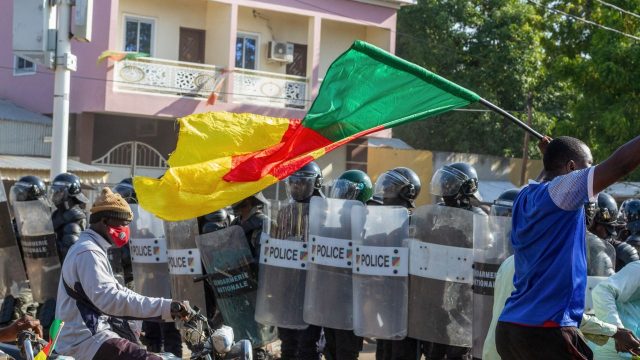
People are taking to the streets in Cameroon, hoping to disrupt one of Africa’s most enduring dictatorships. The country’s president, Paul Biya, has been in office for more than four decades and has been reelected numerous times in contests that are not considered free or fair. But the most recent presidential election, held earlier this month, saw tensions spill over after Cameroon’s Constitutional Council once again declared Biya the winner.
Tampering allegations
The friction emerged when opposition candidate Issa Tchiroma Bakary claimed victory in the presidential election and urged Biya to concede. But Biya, who at 92 is the world’s oldest elected leader, was declared the election winner with 53% of the vote. The council said Tchiroma received 35% of the vote. Biya “rejected Tchiroma’s claim of victory and accused the opposition candidate of trying to disrupt the electoral process,” said The Associated Press. After the election, some “pockets of protests broke out in several cities over the allegations of election fraud.”
This includes claims made by Tchiroma, who said the election was marred with “vote tampering, echoing civil society groups’ earlier reports of ‘several irregularities,’ including attempted ballot stuffing,” said the AP. The group monitoring the election, the National Episcopal Conference of Cameroon, also said the race was “marked by a number of irregularities.” Tension eventually devolved into violence, most notably a fire that broke out in one of the governing party’s offices. Many “photographs and videos of the blazing building,” located in Cameroon’s western region, were “shared widely on TikTok and other social media,” said The New York Times.
At least “four people have been killed in clashes,” while “police fired tear gas to disperse hundreds of people” in the city of Garoua, said Al Jazeera. The protesters were also angered by an internet outage that partially cut off web access for the country. Officials denied responsibility and blamed the outage “on a submarine cable cut,” but the government also “shut down the internet to suppress demonstrations in 2017,” said Bloomberg.
Test of stability
Despite the efforts of the protesters, many feel that Biya’s grip on Cameroon has allowed him to stay in power regardless of any election controversies. With Biya now declared the winner, he will “extend his presidency by another seven years and lead the oil-exporting nation until he’s almost 100,” said Bloomberg. Most people in Cameroon, where the “median age is 18, have never experienced life under any other president.”
The “growing tensions have sparked fears of post-electoral violence in a country already rocked by a separatist conflict in the Anglophone regions,” as well as an “insurgency in the Far North region” by the jihadist militant group Boko Haram, said BBC News. The election also took place against the “backdrop of political stagnation” and a “cost of living crisis,” said The Guardian, all while the “most credible opposition candidate, Maurice Kamto, has had his candidacy barred by the courts.”
“What comes next will be a test for Cameroon’s stability,” said Comfort Ero, president of the non-profit International Crisis Group, to The Africa Report. Biya’s party has “maintained an iron grip on power, thanks to constitutional amendments, strong state control, and a fragmented opposition,” and another victory of his would “carry global symbolism” toward authoritarianism, said Business Insider Africa. For many in Cameroon, the election is “raising questions about the future of leadership in one of Africa’s longest-standing regimes.”
Cameroon’s president has been in office 1982






